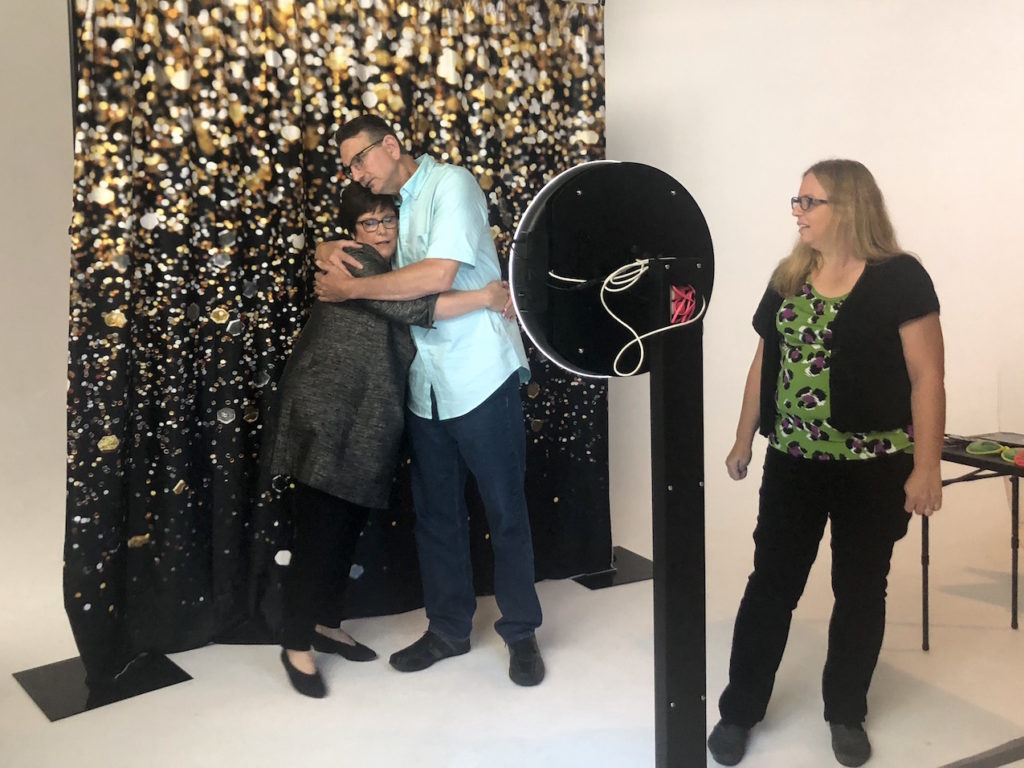
A private detective in Tennessee is trying to solve what she believes is a murder mystery, and her method is one that’s becoming more common: She launched a podcast.
Sheila Wysocki’s podcast gives listeners a deep dive into the pulpy details and theories and asks for help in solving the case — part of a broader trend of true-crime shows that actually try to solve the crime they describe.
At her podcast launch over the summer, Wysocki gathered a group of podcasters, private investigators, true-crime fans and producers at a recording studio in Franklin over a Chik-Fil-A buffet.
“We are here to launch the podcast on the Lauren Agee case,” Wysocki said.
The show, called
Without Warning, tells the story of Lauren Agee, a 21-year-old from Hendersonville. Agee was
found dead in July 2015 at the foot of a cliff during a popular wakeboarding contest in DeKalb County.
The death was ruled an accident, but Agee’s family felt the case was closed too quickly. They decided to hire Wysocki, who became a P.I. almost 15 years ago to look into her former college roommate’s murder, to investigate further.
The show’s opening introduces the case to listeners.
“Come behind the curtain with private investigator Sheila Wysocki as she uncovers the truth about what happened to Lauren,” narrator Tim Evans says dramatically in the introduction. “This is
Without Warning.”
The show utilizes something Wysocki calling “crowd-sourced investigations.” The idea is simple: As she learns new information, she puts out episodes detailing what she’s found, in hopes of re-energizing the case.
‘Finding People Where They Are’
The concept is not entirely new. Police frequently ask the public for help through press releases or televised press conferences.
But podcasting seems to have unique advantages, as one police department in California realized recently. Newport Beach police have been trying to track down the victim’s husband and primary suspect in a 2012 homicide, a millionaire named Peter Chadwick. They featured the facts of the case on local and national news outlets, to no avail.
Then, Jennifer Manzella, the department’s spokeswoman, had an idea to launch a podcast called
Countdown To Capture.
“I’ll be hosting this podcast about Peter Chadwick,” she says in the show’s prologue. “And who am I? Well, I’m not a reporter, and I’m not a true crime enthusiast, and I’m certainly not a disinterested third party.”
Since the department launched the podcast in mid-September, Manzella says they’re getting multiple tips a day. People comment that they are connecting to the case emotionally and finally getting invested in the details of what happened — even though all that information was already available, just in a different format.
“With the podcast, we’re going out and finding people where they are: driving on their commute or mowing their lawn or listening during morning run … instead of asking them to suspend what they’re doing with their day and come watch our press conference,” she says.
Challenges Of Podcasts
But true crime and investigative shows also open themselves up to challenges and criticisms. For Manzella, one came from
the American Bar Association Journal, which worried that the podcast could violate Chadwick’s Fourth Amendment rights, because a listener could see it as incitement for an illegal search.
Other true-crime shows,
like
Serial
, have been faulted for not solving the case or seeming to sensationalize or misrepresent facts.
Payne Lindsey, the host of the true-crime podcasts
Up And Vanished and
Atlanta Monster, says it can be challenging to pull off this kind of series. It often involves parachuting into a community, diving into emotional topics and then packaging the information into a show.
“It’s a fine line, remaining sensitive to every aspect of this real-life case and their families and everything else, and also creating something that will hook people enough to want to come back next week,” Lindsey said.
To Lindsey, it’s ultimately about finding ways to connect listeners to meaningful true stories. To Sara Mayeux, a Vanderbilt assistant professor of law and history, these shows have even greater potential to help reveal cracks in the criminal justice system.
“I don’t know that podcasts alone are going to solve all of the problems with criminal justice,” Mayeux said, “but to the extent that they are one more factor that’s increasing public awareness … then, yeah, I think that it could be part of this mix of factors that ultimately leads to some changes.”
And that’s part of the reason Wysocki got into investigating in the first place, to put accountability back on law enforcement and hopefully spark some change, she says. In the Lauren Agee case, she hopes the podcast will do this. DeKalb County Sheriff Patrick Ray hasn’t reopened the case, but he says he’s aware of the show.
At the very least, Wysocki says tips are pouring in. “We had eight [episodes] ready, and we’re not using any of them because everything has already changed,” she says.
Wysocki doesn’t plan to stop producing episodes until she feels she’s gotten to the bottom of what happened to Lauren. As long as there are tips coming in, she says, she’ll keep her listeners updated and the podcast feed fresh.


